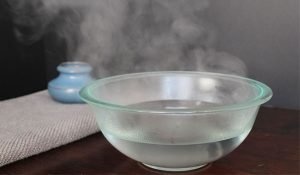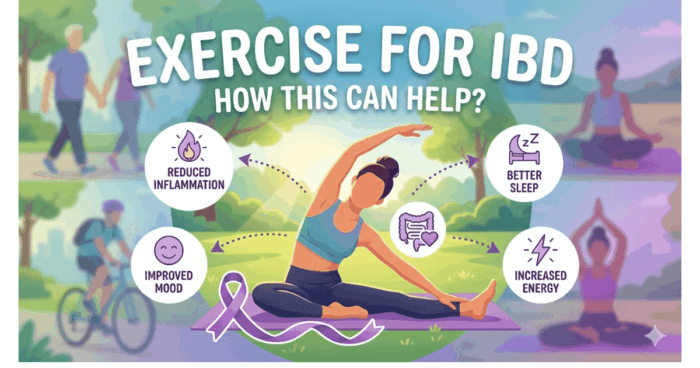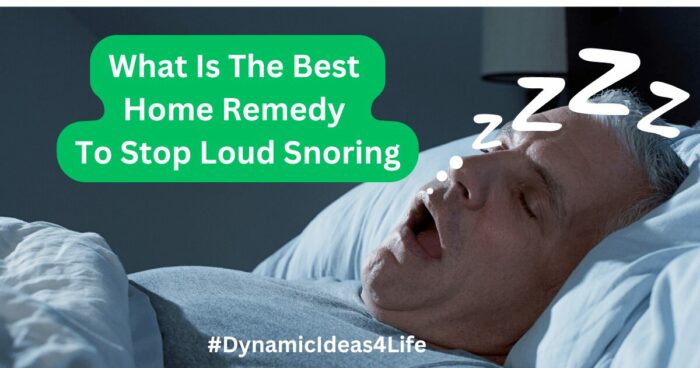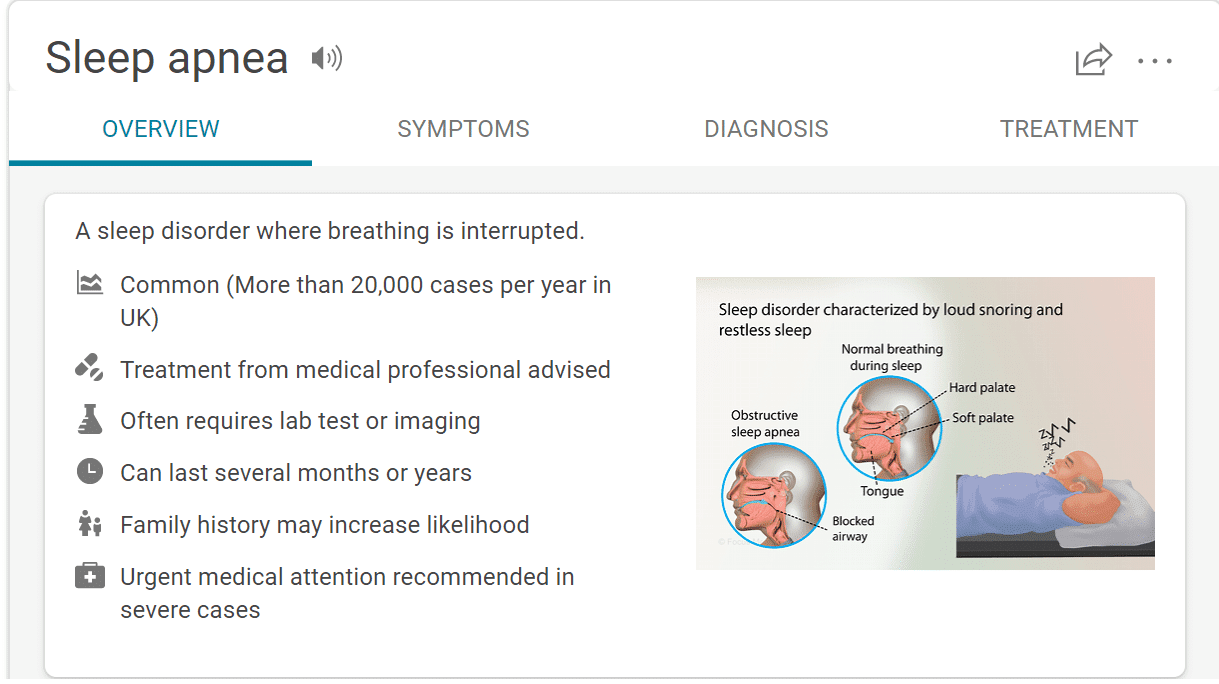This is a very Interesting question that I am sure many people reading this will see and think well, What Is the Best Home Remedy to Stop Snoring?
On Facebook one of the groups where I am a member had somebody ask about this. It has been some years since I originally published this but I think now is a good time for a revision.
At the time I could not answer, but since then I definitely learned a bit more about what Snoring Is and if it is really something you can stop. I mean it isn’t that you can completely without fatal consequences, as after all snoring is us breathing whilst we are asleep but I’m sure many people reading this will know there is snoring and SNORING ZZZ’z (that keeps other people awake lol)
I mean I should know as actually, I myself am a quite loud snorer – cutting out alcohol and smoking has made a pretty significant improvement for me I think but apparently I am still quite loud. Staying in hostels around Europe I have had some funny nights with people waking me up. Sleeping on my side I think was a good tip from someone that I think made it stop one night.
Anyway, I have also had friends stay over before and if you ask them they will tell you that I am no church mouse.

“Maybe when I am awake, sober and around strangers, I might be,
but not when I am asleep at night, and in the presence of visitors”.
But, enough about me, and church mice…
What Is the Best Home Remedy to Stop Snoring?


Firstly, as I said above you can’t stop people snoring. Everybody snores – who doesn’t? BUT YES Just to elaborate further this post is for people that SNORE!! the walls down, and when they sleep for the people in the same room or household this is so bad that it effects them with getting enough quality sleep. This is what I am on about!
This is not just about the other people for the person snoring this could be the sign of something very wrong. After all, snoring is breathing whilst we are asleep – so loud snoring could be a sign of breathing problems. I will certainly look to cover this for a BIG part of this blog post But what is the main cause of LOUD snoring?
And what can you do about this VERY ANNOYING or very WORRYING sound.
OK, so YES although it can be caused by underlying health issues there can be a number of other common causes of snoring it isn’t always down to heart of breathing problems.
Drinking too much alcohol (don’t I know), SMOKING, laying on your back! taking certain medications, or typically old age, being overweight and just catching up on sleep for whatever reason can also contribute.
Although, of course, here are a lot of reasons (unlucky for some) that can cause people to snore a bit LOUDER than they normally should.
To identify which is the main cause for snoring may help, but let’s look at what can be actually done to treat this hypothetically as a problematic condition.
What Is The Best Home Remedy To Stop Snoring? {Please keep reading}
How to Treat Loud Snoring Problems…
The main thing I think that is absolutely FUNDAMENTAL is to first to try and establish what is responsible for the snoring. Booking an appointment to see a healthcare professional is of course really important but you could try I think a few things before – LIFESTYLE CHANGES this is one thing the doctor will say about.
It could be because you might smoke, drink alcohol, or sleep on your back. Or it could be because you are overweight or maybe it is the medication you are currently taking.
See if changing some of these things resolves your issues with snoring in the short term. Alcohol (or tobacco) definitely you should take a break from to see if it changes anything. Losing weight is not exactly something you can do short term but you can start making subtle changes to your behaviour with consumption.
But either way you should seek advice from your GP. This could be caused by something a lot more serious.
Snoring to the extent that it is a problem can be caused by restricted airways. In the case of alcohol, for example, people snore because it relaxes throat muscles and decreases our natural defence against airway blockages.
This is the cause of dry mouth due to a thickening of mucus. Saliva requires oxygen
So, there is this but also as I will demonstrate below there are other ways to treat snoring problems.
Ways such as home remedies…
Home Remedies To Try to Stop Snoring?
Loud snoring can be disruptive and may affect your sleep quality, along with that of your partner. Fortunately, there are several natural remedies you can try at home to reduce or even eliminate snoring:
1. Sleep Position Adjustment
Sleeping on your back can cause the base of your tongue and soft palate to collapse to the back of your throat, leading to snoring. Try sleeping on your side to prevent this. A body pillow or specialized anti-snore pillows can help you maintain a side-sleeping position throughout the night.
2. Keep Nasal Passages Clear
Nasal congestion or blockages can cause mouth breathing, which contributes to snoring. Before bed, use a saline nasal spray, a nasal decongestant, or a warm shower to open up your nasal passages. Nasal strips or dilators can also help keep the airways open while you sleep.
3. Stay Hydrated
Dehydration can cause the secretions in your nose and throat to become thicker, making snoring more likely. Aim to drink plenty of water throughout the day to stay well-hydrated and reduce the chances of snoring at night.
4. Elevate Your Head
Raising the head of your bed by a few inches or using an adjustable pillow can help reduce snoring by preventing your airways from becoming restricted. This slight elevation reduces the risk of soft tissue collapse in the throat, allowing for smoother breathing.
5. Maintain a Healthy Weight
Excess weight around the neck can squeeze the throat and cause snoring. Regular exercise and a balanced diet can help you achieve and maintain a healthy weight, reducing the pressure on your airways during sleep.
6. Avoid Alcohol and Sedatives
Alcohol and sedative medications relax the muscles in your throat, which can worsen snoring. Avoid consuming alcohol within three hours of bedtime and speak to your doctor about alternatives if you’re taking sedatives.
7. Practice Throat and Tongue Exercises
Strengthening the muscles in your throat and tongue can help reduce snoring by preventing them from collapsing during sleep. Simple exercises, like sliding your tongue backward along the roof of your mouth, can improve muscle tone over time.
Try Peppermint Tea

If anybody comes from or has been to Morroco before a popular drink that many have here is Peppermint Tea. When I travelled here in 2018 it’s something I fondly remember and it does seem to be over there from what I could see as a normal thing as Tea or Coffee in the UK (where I’m from).
But anyway, so Peppermint Tea is another possible home remedy to help Loud Snoring. Especially if this snoring is due to nasal congestion or throat inflammation.
The anti-inflammatory properties of peppermint help soothe the lining of your airways, making it easier to breathe during sleep.
Drinking a warm cup of peppermint tea before bed can help clear your nasal passages and reduce swelling, leading to less airway restriction and quieter nights.
How to make Peppermint Tea!
1.) Pick 7-10 fresh Mint Leaves.
2.) Wash leaves, gently crush leaves and press lightly with a spoon.
3.) Place the leaves in a mug. Add more for a stronger brew.
4.) Boil the kettle, and wait 2 minutes.
5.) Pour water in the mug and leave to brew for 7-8 minutes.
6.) Remove the leaves, and if you wish add honey, sugar, and milk.
7.) Drink the tea!
Other Effective Home Remedies for Snoring

If you’re looking to expand your options for tackling snoring, there are several other home remedies that may prove helpful. These remedies focus on addressing the underlying causes of snoring, such as airway blockages or poor sleep habits.
1. Humidify Your Bedroom
Dry air can irritate the membranes in your throat and nasal passages, making snoring worse. Using a humidifier in your bedroom can help keep the air moist, reducing irritation and helping to maintain clearer airways. Adding a few drops of eucalyptus oil to the humidifier can further support nasal congestion relief.
2. Olive Oil
Olive oil is a natural anti-inflammatory that can help ease the tissues in your respiratory system. Drinking a small amount of olive oil—about two to three sips—before bed can lubricate your throat muscles and reduce snoring by preventing their collapse.
Alternatively, you can combine it with honey for a soothing, snore-reducing remedy.
3. Essential Oils
Certain essential oils, like eucalyptus, lavender, and thyme, have been used for snoring relief. Eucalyptus oil, in particular, is known for its ability to open up nasal passages and reduce congestion. You can either diffuse these oils in your bedroom or apply a few diluted drops to your chest before sleep.
4. Fenugreek
Fenugreek has been traditionally used to treat digestive issues and is now gaining attention for its ability to reduce snoring caused by sleep apnea or excess mucus. Fenugreek helps improve digestion and reduces mucus build up, making it easier to breathe at night.
You can take it in supplement form or brew it into tea for snoring relief.
5. Probiotics for Gut Health
Poor gut health can lead to inflammation, which might contribute to snoring. Taking probiotic-rich foods like yogurt, kefir, or kombucha helps balance your gut bacteria, potentially reducing inflammation and improving your sleep quality. A healthy gut is key to overall wellness and might also reduce night time snoring.
You might also try Probiotic supplements if you are really keen on this idea – especially if you need to lose weight!
6. Adjust Your Mattress or Bedding
Sometimes the root cause of snoring is linked to your sleep environment. An old or unsupportive mattress can cause poor sleep posture, which can block your airways. So switching to a firmer mattress or upgrading your bedding can help promote better alignment of your head, neck, and spine, reducing the chances of snoring.
Peppermint is maybe the most popular remedy for snoring but there are others.
For instance, taking 2-3 spoonfuls of olive oil before bed.
This is because olive oil is a strong anti-inflammatory that reduces swelling, and clears up our airways.
Alternatively, combine one teaspoon of olive oil with honey for a similar solution.
Steam Inhalation to Clear the Airways

Steam inhalation is a simple yet effective remedy to help clear the airways, especially if your snoring is caused by nasal congestion or sinus issues. When you inhale steam, it loosens mucus and reduces inflammation in your nasal passages, making it easier to breathe.
This can help prevent the airway blockages that contribute to snoring.
How to Use Steam for Snoring Relief
- Boil Water: Start by boiling water and carefully pouring it into a large bowl.
- Add Essential Oils (Optional): For extra relief, add a few drops of eucalyptus or peppermint essential oil to the water. These oils have natural decongestant properties that enhance the effectiveness of the steam.
- Inhale the Steam: Place a towel over your head to trap the steam and lean over the bowl. Be careful not to get too close to avoid burns. Breathe deeply through your nose and mouth for 5-10 minutes.
- Repeat Before Bed: Doing this once before bed can help open up your airways and promote easier breathing throughout the night, reducing the likelihood of snoring.
Steam therapy not only clears nasal congestion but also soothes irritated tissues in your throat and lungs, providing an all-around benefit for anyone struggling with snoring.
Underlying Health Issues That Cause Loud Snoring

While snoring can sometimes be a harmless annoyance, it’s important to recognize that it can also be a symptom of underlying health issues.
Addressing these conditions not only helps reduce snoring but can also improve your overall well-being.
Here are some common health issues that may lead to snoring:
1. Obstructive Sleep Apnea (OSA)
One of the most serious conditions associated with snoring is obstructive sleep apnea (OSA). In OSA, the muscles in the throat relax excessively during sleep, causing a temporary blockage of the airway. This leads to loud snoring followed by periods of silence when breathing stops and then a gasping or choking sound when normal breathing resumes.
Untreated OSA can result in poor sleep quality and has been linked to high blood pressure, heart disease, and other serious health issues. If snoring is accompanied by excessive daytime fatigue or pauses in breathing, consult a healthcare professional for evaluation.
2. Chronic Nasal Congestion
Persistent nasal congestion, whether from allergies, sinus infections, or structural issues like a deviated septum, can force you to breathe through your mouth, which often leads to snoring. Treating the cause of nasal congestion, such as through allergy management or decongestants, may help reduce snoring.
3. Obesity
Carrying excess weight, particularly around the neck and throat, increases the risk of snoring. The extra tissue in the neck can press against the airway, making it more likely to collapse during sleep and restrict airflow. Managing weight through a balanced diet and regular exercise can often reduce or eliminate snoring.
4. Hypothyroidism
Hypothyroidism, a condition where the thyroid gland produces insufficient hormones, can lead to weight gain and muscle weakness, including in the throat. This can cause the airway to narrow, resulting in snoring. If hypothyroidism is suspected, a doctor can prescribe medication to regulate thyroid function and potentially alleviate snoring.
5. Acid Reflux (GERD)
Gastroesophageal reflux disease (GERD) can cause stomach acids to back up into the throat, irritating the airway and leading to inflammation that may contribute to snoring. Treating acid reflux with dietary changes or medication can help reduce the associated snoring.
6. Sleep Deprivation
Not getting enough sleep can cause your throat muscles to relax more than usual when you finally do rest, increasing the likelihood of snoring. Establishing a consistent sleep schedule and ensuring you get enough rest each night can improve muscle tone and reduce snoring.
7. Aging
As we age, muscle tone in the throat naturally weakens, making snoring more common. While aging can’t be reversed, practicing throat exercises, maintaining good sleep hygiene, and using other snore-reducing methods can help minimize snoring caused by age-related factors.
What If You Have Sleep Apnea?
One very worrying condition related to loud snoring is sleep apnea. This is where you are actually prevented from breathing properly. Most people I’m sure would hope this is not why they are making such a racket at night but this is why it is sensible to see a doctor in case this is the problem.
Asthma and hayfever may be less serious issues, but then other breathing complications to do with your throat or nasal passage could be the likely cause as well.
I will not use this post to try and scare people, as I mostly want to look at remedies more than anything but be sure to bear this in mind if you have issues with snoring.
How To Treat Sleep Apnea?
Sleep apnea is a serious sleep disorder where breathing repeatedly stops and starts during sleep. The most common type, obstructive sleep apnea (OSA), occurs when the muscles in the throat relax and block the airway.
Treating sleep apnea is crucial not only to reduce snoring but also to prevent long-term health risks like heart disease, high blood pressure, and diabetes.
Below are some of the most effective treatments for sleep apnea:
1. Continuous Positive Airway Pressure (CPAP) Therapy
CPAP therapy is one of the most effective and common treatments for moderate to severe sleep apnea. A CPAP machine delivers a steady stream of air through a mask worn over the nose or mouth, keeping the airways open throughout the night.
This prevents the airway from collapsing and stops snoring as well as apnea episodes. Though it may take some time to get used to, many people find relief from sleep apnea symptoms using a CPAP machine.
2. Oral Appliances
For mild to moderate sleep apnea, oral appliances can be an effective alternative to CPAP. These custom-fitted devices, provided by a dentist or orthodontist, work by repositioning the lower jaw and tongue to keep the airway open during sleep.
They are more comfortable and less cumbersome than CPAP machines, making them a popular choice for some individuals.
3. Lifestyle Changes
Certain lifestyle modifications can significantly reduce the severity of sleep apnea, especially in milder cases:
- Weight Loss: Excess weight, particularly around the neck, increases the risk of airway obstruction. Losing weight through diet and exercise can alleviate symptoms of sleep apnea.
- Sleeping Position: Sleeping on your back can worsen sleep apnea by causing the tongue and soft tissues to block the airway. Side sleeping is recommended to keep the airway clear.
- Avoiding Alcohol and Sedatives: Both alcohol and sedatives relax the muscles in the throat, which can exacerbate sleep apnea. Avoiding these substances, particularly before bedtime, can reduce symptoms.
4. Surgery
In some cases, surgery may be required to treat sleep apnea, particularly if it is caused by a structural issue such as enlarged tonsils, adenoids, or a deviated septum. Surgical options include:
- Uvulopalatopharyngoplasty (UPPP): This procedure removes excess tissue from the throat to widen the airway.
- Tonsillectomy or Adenoidectomy: Removing enlarged tonsils or adenoids can help clear the airway, especially in children with sleep apnea.
- Genioglossus Advancement (GA): This surgery repositions the tongue muscle to prevent airway collapse.
5. Positional Therapy
For people who have positional sleep apnea (which occurs primarily when lying on their back), positional therapy can help. This involves using specialized devices, like a positional pillow or wearable belts, to encourage sleeping on the side. It’s a non-invasive and simple way to reduce symptoms for mild cases of sleep apnea.
6. Inspire Therapy (Upper Airway Stimulation)
Inspire is a relatively new treatment that involves surgically implanting a small device in the chest. This device stimulates the nerves controlling the airway muscles, keeping the airway open while you sleep. It’s an option for people with moderate to severe sleep apnea who cannot tolerate CPAP.
If you suspect you have sleep apnea, it’s important to seek a diagnosis from a healthcare provider. Treating sleep apnea not only improves sleep quality but also protects your long-term health.
Final Thoughts
If you have been told you are a loud snorer (like myself), or you wake up in the night with a dry mouth or throat (a clear sign of blocked airways) then things in this article should be taken into consideration.
I would say to try the nasal decongestants for a couple of nights. Even some of the herbal remedies mentioned earlier in the article such as the Mint or Camomile Tea which can be made with wild plants.
But most Importantly, if this could be the case then consider making lifestyle changes. If you drink alcohol, or smoke this could be responsible but even if it isn’t then by eliminating these you can get a clearer idea of other underlying health issues that might be responsible.
If you are overweight this is certainly another factor – try to see if losing weight helps with your snoring. If you need any help be sure to look at some of my other posts via my homepage for different ideas.
Also, consider that you have the right conditions available to get a good nights sleep, a good sleep environment is very important and do not sleep on your side. This may also be helpful.
Finally, (if not firstly) speak to a Doctor if your snoring is being caused by Sleep Apnea or restricted breathing it’s very important you get some help as soon as you can.
I will finish up this article here but if you any questions or would like to share any feedback please do so in the comments section below…

Ab Workouts Anxiety and Depression best ways to lower blood sugar BiOptimizers blood pressure supplements blood sugar support supplements Digestive Enzymes Supplement digital products Dr Sam Robbins Exercise Gut Health Healthy Living heart health HFL how to lower blood sugar levels How To Lower Cholesterol insulin resistance joint health supplement Keto keto dieting Keto Diet Weight Loss leaky gut supplements leptin resistance list Magnesium deficiency Matt Gallant mental health multivitamins Nootropics nutrient supplements Oral Healthcare Probiotics Probiotic Supplements proteolytic enzymes reverse type 2 diabetes stress and anxiety stress relief vitabalance vitapost Wade Lightheart weight loss articles weight loss diet plans weight loss product reviews weight loss supplements weight loss tea














I do not snore but I have a shared a room with someone who snores LOL 😆 no lie it will be the longest night of your life ,the snore will be so loud that one can not even catch a sleep waking the person up will be a waste of time before you knew if the person will be snoring again. Thanks for sharing the remedies
Thanks Audrey! Hope this helps.
Are you saying by the initial picture that some people snore like a hippopotamus. That’s so funny!
I rent a room in a house with 8 other people. There are 8 bedrooms. Now my landlady’s boyfriend, anytime he stays, snores so loudly like some sort of animal, that it’s really annoyingly annoying! He’s not exactly slimmer of the year too! He’s quite plump actually. It doesn’t even help that my landlady is a smoker herself!
Reading through your article though, has helped me to understand why people snore as they do!
Should i confront my landlady’s boyfriend?
To tell you the truth, it’s not really any of my business. I just put up with it, like everyone else in the house.
Maybe i should suggest snoring aids to him, such as an anti snoring mouth and nose piece, a chin strap, a snoring solution or even a throat spray!
Have you heard of the stop snoring ring or the anti snoring full head chin strap, or the snorestopper tongue or even the antisnore sleep apnea pillow. I bet the hippopotamus hasn’t.
Sweet dreams then! 😴
Hello, Glad, you enjoyed – one of my aims of this post was to make it more entertaining so glad you liked my Hippotamus analogy. I was looking on Canva for a good picture and I thought this picture was perfect.
About your house mate – I know it would be rude to suggest he does this or does that to stop snoring but here is an idea – Maybe share this post to them. You might be surprised😴
Thank you very much for your great advice! I am not snoring, but my husband does. He is not overweight, but I think that he has an allergic reaction. He doesn’t want to stop eating a certain food, so I can’t do anything about it. But I would like to try Peppermint tea, olive oil, and vital sleep. Maybe it might delete the restrictions. He drinks not enough water, so he has got quite a lot of mucus. I let him read your post. Thank you very much!
Hi Sylvia, I also have a snoring problem when I drunk alcohol because of my airways being blocked my thickening mucus. I can also tell when I get this problem as I get really bad dry mouth. A crazy thing I have found to help is making a brew with stinging nettles and honey. Although I realise this might not help all causes of snoring. I think for certain conditions that vital sleep device may be a good investment.
Snoring can be very embarrassing and very annoying, especially when it is coming from somebody else. But in some cases it can be understandable as the snoring can be caused by tiredness or fatigue. Thanks for this helpful information on the best ways snoring can be stopped. I have learnt a lot from reading this article.
Thanks Nelson. It is my pleasure